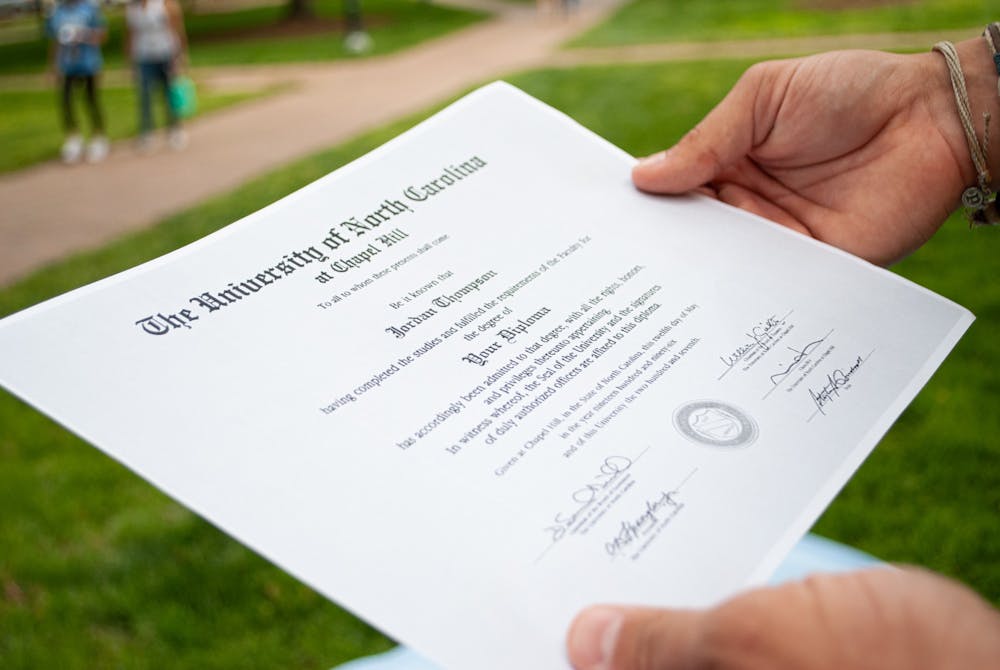Seniors graduating from UNC are now able to specify the name that appears on their diplomas.
This decision was made as a way to allow students who may not go by their legal names to display the name they identify with on their diplomas. Assistant Provost and University Registrar Lauren DiGrazia said the goal of this decision is to increase student pride in their accomplishments.
“We hope this change in practice will enhance the pride students feel when they display their diploma printed with the name that best reflects their identity,” DiGrazia said in a message to seniors on April 12.
This decision was largely pushed for by Terri Phoenix, the director of the LGBTQ Center. Phoenix said the ability for students to specify the name that will appear on their diplomas is an important way that the University is supporting transgender and nonbinary students.
“The most important message that it sends is that it is student-centric, that they recognize diplomas are something students can display proudly,” Phoenix said. “They have worked hard to get those diplomas, for people with multiple marginalized identities in particular, it is not an easy journey.”
University documents and emails sometimes show student and staff legal names, while other times, they show their affirmed name. Max Carter, a junior member of the Sexuality and Gender Alliance at UNC and employee at the LGBTQ Center, said they don’t know when their affirmed name or legal name will appear.
“It’s really hit or miss,” Carter said. “A lot of the time you don’t know what name is going to show up in different places. There are so many different names I get from the UNC email list. Even on more official stuff, it's still like a grab bag of what name will show up, which is really frustrating.”
Phoenix said over the years at the LGBTQ Center, T has found that the uncertainty regarding what name will appear on documents and emails can be harmful to students.
“I think it’s very damaging and it contributes to a sense of alienation and not belonging and not being respected or seen,” Phoenix said. “In the worst case scenario, it can also unintentionally out someone, which can be very physically dangerous, not to mention academically dangerous because of the prejudice and discrimination that exists.”



